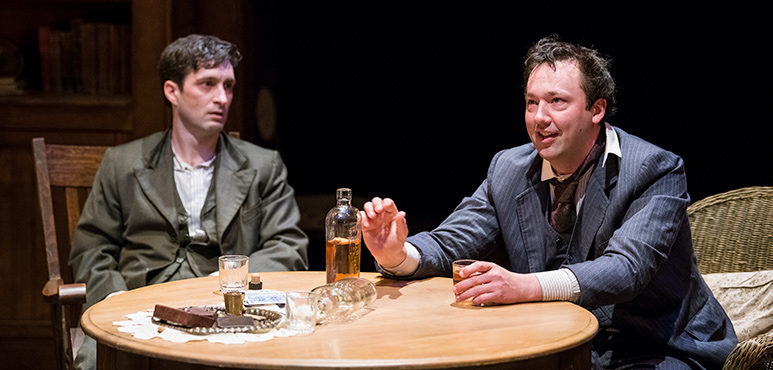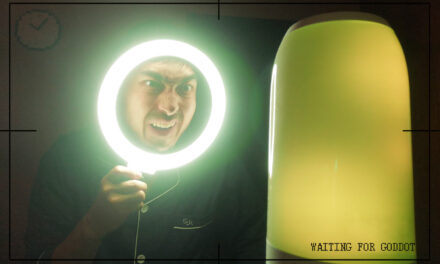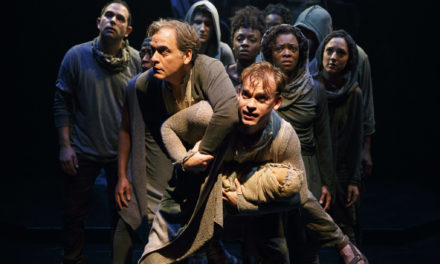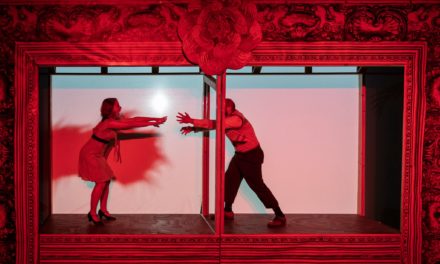Eugene O’Neill’s classic twentieth-century semi-autobiographical drama deals with the Tyrone family who clash with themselves and each other in one long night that will scar them for the rest of their lives.
The Opening Night Production
For me, great theatre must challenge and change its audiences whether it’s how we might view ourselves, others, and/or the microcosmic view of the world which we know. A search for freedom is a force for change. For Stratford Festival Artistic Director Antoni Cimolino, this theme of freedom weaves through all the productions this year. He writes in the Playbill,
“Finding true freedom within our communities, families and ourselves is no easy task. It is the conflict created by our search for freedom which makes for great theatre.”
This 2018 Stratford production of Long Day’s Journey Into Night is great theatre. Five sensational actors, in three and a half hours, took me on a journey to watch how the Tyrone family members long to attain their own personal freedoms often with tragic results. I was moved emotionally, humanely, and artistically at many moments that I was unaware of the time passing by, and I didn’t care that it did.
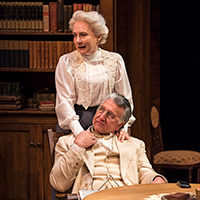
Seana McKenna as Mary Cavan Tyrone and Scott Wentworth as James Tyrone in Long Day’s Journey Into Night. Photography by Emily Cooper.
Director Miles Potter and the company’s naturalistic approach and vision of this production is critical for a true appreciation of O’Neill’s 20th-century American masterpiece tragedy. Kim Solga, professor of Theatre Studies at London, Ontario’s Western University, adds to this understanding of naturalism with the term geopathological drama (I never heard it before) in the Playbill analysis. Ms. Solga writes the Tyrone country cottage, itself, seems to be killing each member of the household slowly.
And right she is on this account.
Peter Hartwell’s design is intoxicatingly impressive upon initial entrance to the Studio Theatre, but that changed for me once I sat down and studied the set from my seat in the house. There is an immediate claustrophobic element in this country cottage’s living room. The darkness of the wood paneling made me long for some warm lighting. The tiny chandelier hanging over the circular table intentionally does not provide enough to make this living space inviting. The looming distant sound of the fog horn throughout the performance reinforces even further the sense of loneliness, dread, and doom not only in the cottage but also in the lives of each member of the Tyrone family.
Divinely supreme performances from these five gifted artists are key to this spellbinding performance. As Mary Cavan Tyrone, Seana McKenna enthralled me and broke my heart many times in the four acts. She captures and skillfully maintains this heightened sense of dread in the way she cocks her head to one side upon hearing the distant foghorn. Pay close attention to the way Ms. McKenna uses her hands and fingers to show the gradual progression of the arthritis and its eventual result. Scott Wentworth as the patriarch matches this same gifted level of performance as Ms. McKenna. His controlled emotional levels in performance as James Tyrone are finely nuanced in those rare moments where he reveals his love for Mary contrasted by lashing out savagely at his sons, often through drunken moments, with biting sarcasm.
Sons Jamie and Edmund sharply and acutely played by Gordon S. Miller and Charlie Gallant, are more than mere facsimiles of their father on the same road to destruction. The sons drink secretly to excess, especially in the second act, to escape the suffocating environment of their world at the country cottage. Why? Jamie and Edmund have reached the pinnacle of nothing in their forlorn lives. Messrs. Miller and Gallant capture in their clearly defined performances, especially in their voices, an inherent and escalating despair and sadness in the realization there is nothing else.
Amy Keating as Cathleen, the housekeeper, provides some necessary Irish wit and humor since this play is heavy duty stuff. But these brief moments only heighten the anguish in what’s to come later. In Act 2, Mary is afraid of being alone and asks Cathleen to stay and keep her company for a few moments while dinner is delayed. Ms. Keating’s performance at this moment is rather poignant, as Cathleen is the only one who wants to listen and hear truly what Mary is saying.
Final Comments
I do my best to travel to The Stratford Festival each year to watch with awe actors who have been trained in the craft, and it is my hope that serious theatre goers would do the same. Long Day’s Journey Into Night is one not to be missed. Get to see this if you can.
Long Day’s Journey Into Night continues at the Studio Theatre, 34 George Street, in repertory until October 13, 2018. Visit www.stratfordfestival.ca to purchase tickets online and for further information.
This article originally appeared in Onstage Blog on June 01, 2018, and has been reposted with permission.
This post was written by the author in their personal capacity.The opinions expressed in this article are the author’s own and do not reflect the view of The Theatre Times, their staff or collaborators.
This post was written by Joe Szekeres.
The views expressed here belong to the author and do not necessarily reflect our views and opinions.

